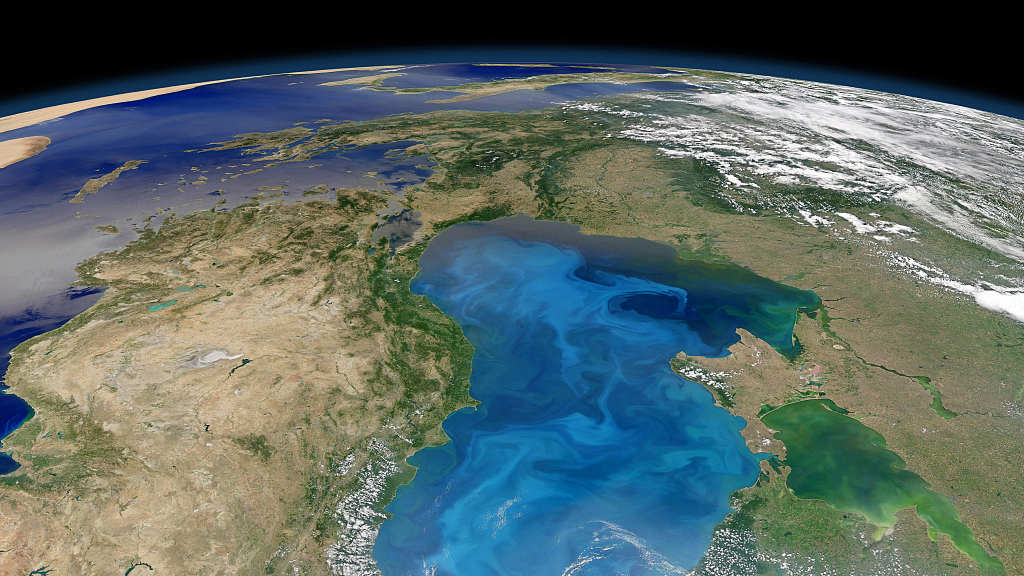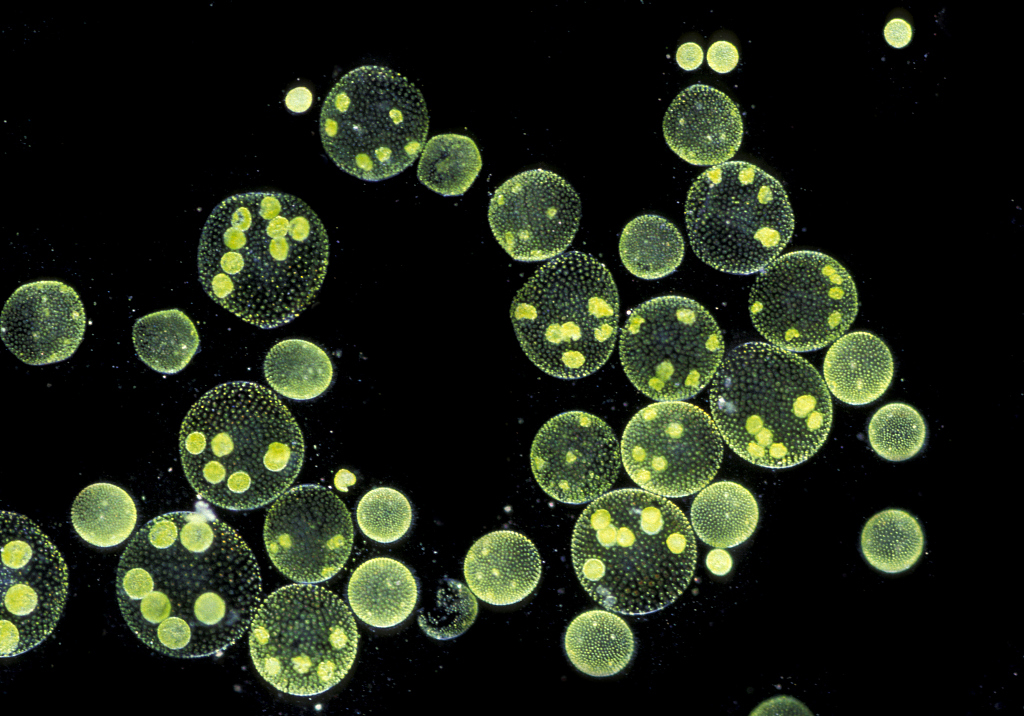
View of the ocean and phytoplankton from space. /VCG
View of the ocean and phytoplankton from space. /VCG
A new study by the Massachusetts Institute of Technology (MIT) published Tuesday suggests that iron fertilization may not have a significant impact on phytoplankton growth.
Historically, the oceans have done much of the planet's heavy lifting when it comes to sequestering carbon dioxide from the atmosphere. Microscopic organisms known collectively as phytoplankton, which grow throughout the sunlit surface oceans and absorb carbon dioxide through photosynthesis, are a key player, according to the study published in the Proceedings of the National Academy of Sciences.
To help stem escalating carbon dioxide emissions produced by the burning of fossil fuels, some scientists have proposed seeding the oceans with iron, an essential ingredient that can stimulate phytoplankton growth.

Algae under the microscope. /VCG
Algae under the microscope. /VCG
The MIT researchers studied the interactions between phytoplankton, iron and other nutrients in the ocean that help phytoplankton grow. Their simulations suggest that on a global scale, marine life has tuned ocean chemistry through these interactions, evolving to maintain a level of ocean iron that supports a delicate balance of nutrients in various regions of the world.
"According to our framework, iron fertilization cannot have a significant overall effect on the amount of carbon in the ocean because the total amount of iron that microbes need is already just right," said lead author Jonathan Lauderdale, a research scientist in MIT's Department of Earth, Atmospheric and Planetary Sciences.
(All Photos via VCG)
(If you want to contribute and have specific expertise, please contact us at nature@cgtn.com.)
Source(s): Xinhua News Agency